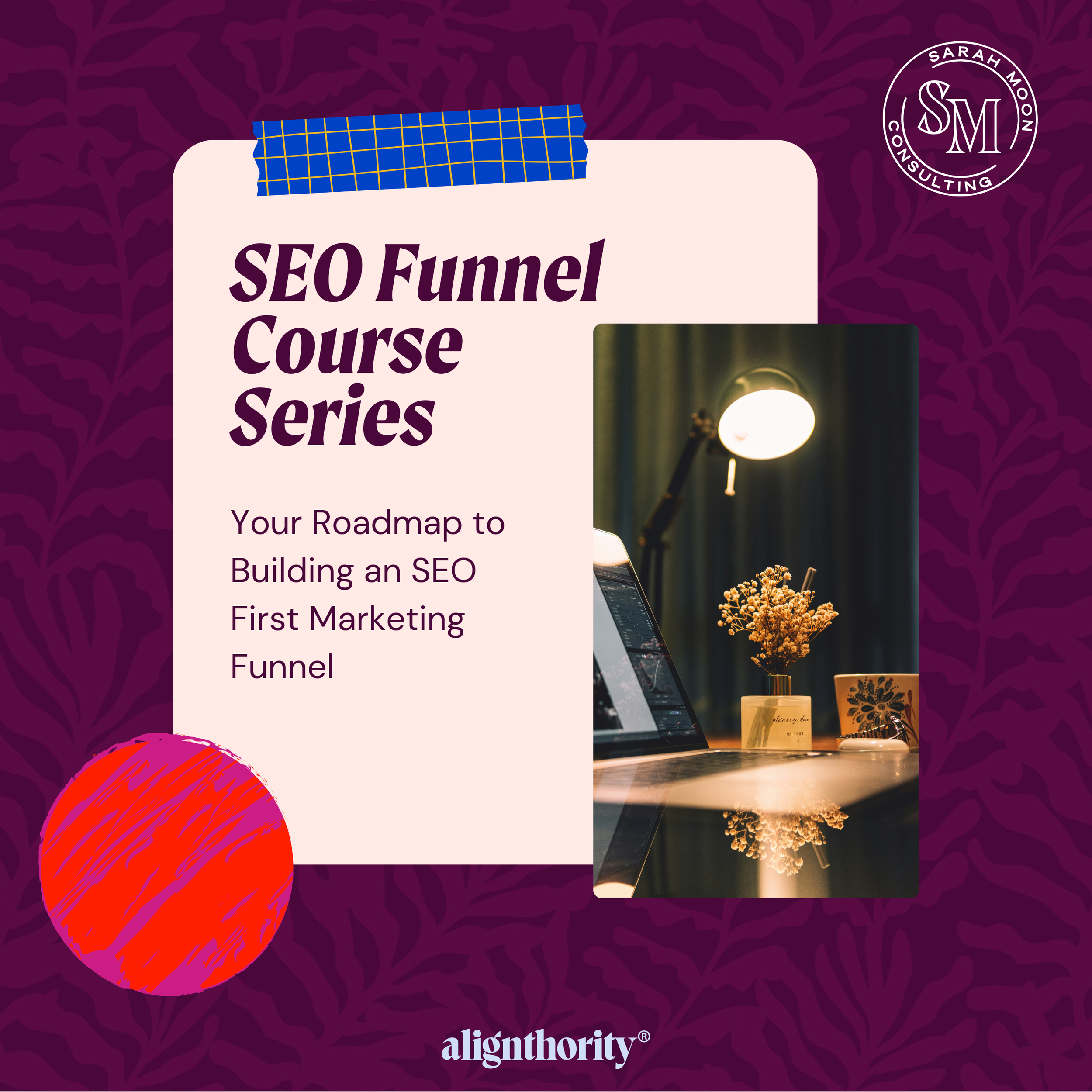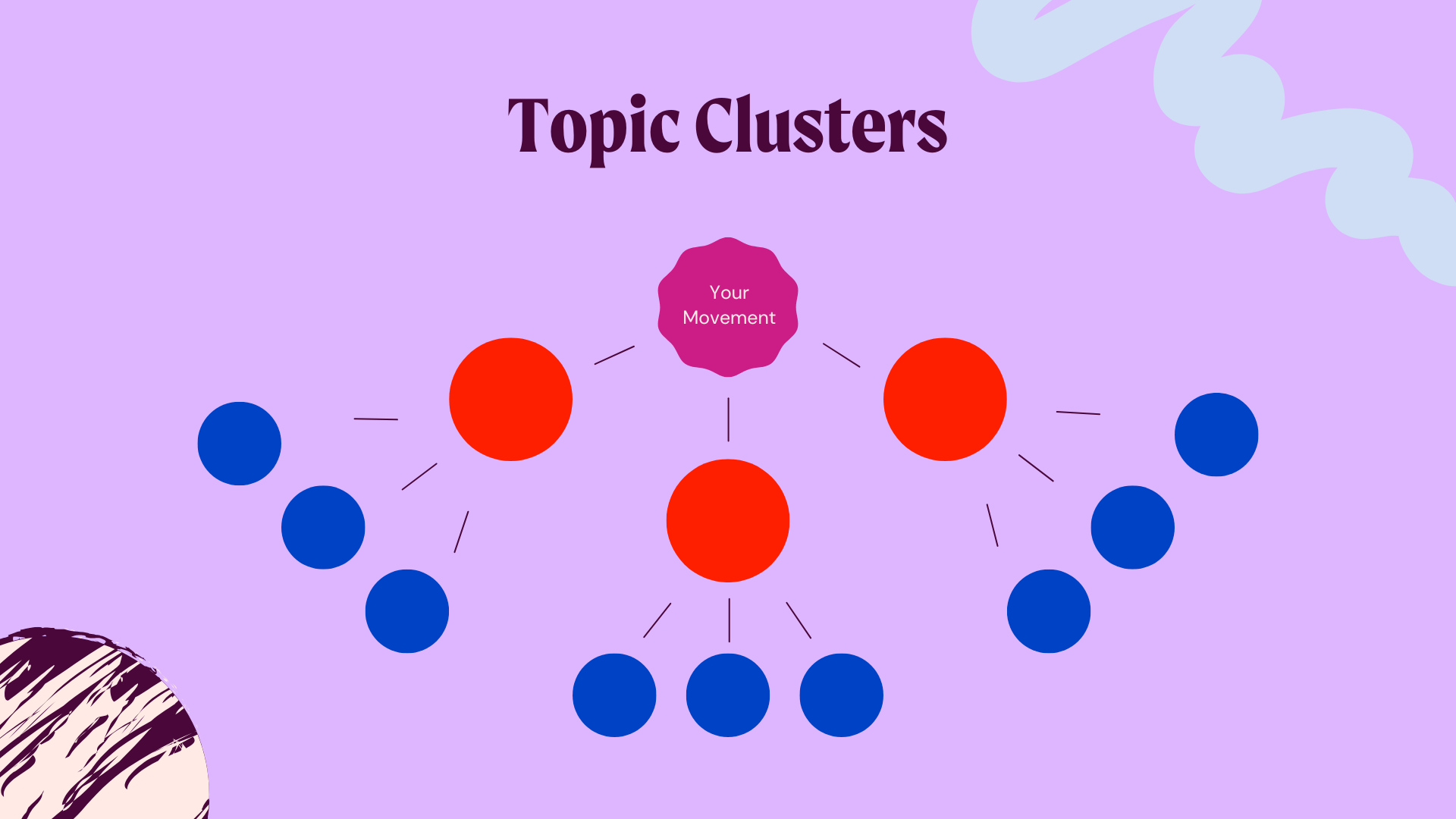Does SEO work for coaches & is it right for your coaching business?
Thinking about SEO for coaches? You’re in the right place!
If you're a coach (or a high-expertise consultant) you've likely built your business on relationships. This means referrals, networking, or organic social media. You likely have assumed that SEO (aka search engine optimization) isn't for a business like yours. Or, you're not even sure what SEO is—maybe it sounds highly technical, overwhelming, and mysterious.
In fact, one of the most common question coaches ask when they inquire about working with us is, "Does SEO even work for coaches?" That kind of marketing pipeline just feels so different from how they've built their businesses that it's hard for them to get their heads around an SEO marketing funnel. But for many coaches, not only will SEO work—it will get their brand in front of a whole new audience. How's the for impact?
Even if you're successful on social media and through your networks, SEO is a marketing approach you should at least consider—it is, after all, where 90 percent of internet experiences start! And, search drives 1000 percent of the traffic that social media does.
Let's demystify all of that and talk about if SEO is right for your coaching practice's marketing plan.
Before we dive into the nuts and bolts of SEO, it's helpful to define a common language so we're on the same page (much like you likely do with your coaching clients).
Here are a few common terms you may see when researching SEO for coaches.
SEO: This stands for Search Engine Optimization. SEO is a marketing tactic that helps websites become more visible in Google and other search engines. There are over 200 different elements, including technical, content, and factors outside your website. There is no singular factor that makes a difference in your appearance in the search engine—these factors work together to determine your position.
SERPs: This is an acronym for Search Engine Results Pages. We don't like to use this acronym as it often confuses our clients. Basically, it's what shows up when you search a term in Google.
Keywords: These are the terms that someone searches when looking for a business like yours or a solution to their problem. About half of searches have four or more words—so part of your SEO strategy for your coaching business should be these longer searches.
Longtail Keywords: These are longer searches, including questions (think of things you may ask Siri or Alexa) people search in Google. We love longtail keywords for expertise-based businesses!
Competition: Just like in business, keywords have competition! We use software like SEMRush or Moz that tells us how competitive keywords are, but you can use a free tool like Google Keyword Planner too. Dive into our approach to keyword research for the real world in this article.
Volume: This term simply means how often something is searched. There is no right volume to target—despite what various SEO specialists may say. This is highly individual and your SEO strategy should account for your existing authority in the search engine, your niche, your price point, and many other factors.
Conversion Optimization: Once someone lands on your site from the search engine, make sure you have a strategy for capturing the searcher's attention and engaging them.
SEM: Search Engine Marketing is a related discipline to SEO and refers to paid search engine listings. Be careful not to cannibalize your SEO with SEM—though the two can play nicely together.
Now that we've defined our terms, let's dive into whether or not SEO should be a piece of your coaching business' marketing strategy.
Ready to learn the right approach to SEO strategy for your coaching business?
Then join my SEO funnel course series designed just for subject matter experts and thought leaders like you. Approachable and yet sophisticated, this series will set you on the right path to building an evergreen SEO funnel on your terms.
Does your coaching business have a clearly defined niche and framework that your SEO strategy can leverage?
The number one barrier to successful SEO that I see in coaching businesses in particular is vagueness. If you cannot clearly articulate the results of your coaching (hint: it's not nebulous ideas such as "confidence").
If you're a life coach, for example, you will need to be more specific. Do you focus on rediscovering spirituality? On reinventing yourself after grief? If you're an executive coach, again, be crystal clear. Do you focus on new executives entering the c-suite for the first time? On the clean energy sector? This focus will heavily inform your SEO strategy.
If you are early in your coaching business, you may still be defining what makes you different. If that's the case, converting searchers to leads will be challenging. Before investing in SEO, my advice is to focus on your framework and the client journey.
If you can clearly state how your coaching transforms your clients, then you may be ready to get serious about your search engine optimization.
Have you identified your audience for your coaching practice so you know whom to target with your SEO strategy?
At SM&Co, we don't believe in creating cookie cutter ideal client avatars. These are effectively fancy busywork that avoid getting to the heart of your clients' dreams and aspirations. Instead, we push for a deep understanding of clients' problems, their thinking, the language they use, and more.
Think about the clients that have the most success with your coaching—what do they have in common besides simple demographic qualities?
For example, a career coach may see that their clients have hit an income ceiling in their industries. That's something worth including in your audience profile and a concept we can build an SEO strategy around.
Can you articulate at least three big problems, challenges, or aspirations that your favorite coaching clients come to you with?
Have you sold the coaching offer you want to promote with SEO?
Yes, this may sound very basic, but we require that our clients have proof of concept of the offer they want to promote via SEO.
Hiring an SEO expert if you're unsure if the offer has legs is a bad idea. Sure, you may attract more eyes to your content, but if you're struggling to sell your offer with networking, you're going to struggle to sell it in the search engine. If that's the case, I urge you to evaluate your offer with clear eyes, and do market research with qualified buyers of your coaching service (not other coaches, not your Facebook friends). You could have an issue with format, length of engagement, product-market fit, positioning, or any number of other common challenges.
SEO should never be a Hail Mary for a struggling business.
If you have consistent sales in your coaching business, and want to reach an expanded audience, have bigger impact, diversify your pipeline, or build your brand, SEO can be a great fit!
Are you comfortable with longer-term marketing strategies or are you happiest with "quick win" approach to marketing your coaching business?
If you're a coach who wants to see daily growth right away, you may find yourself frustrated with SEO as part of your marketing approach. If that's the case, you may prefer social ads, social networking, challenges, or search engine marketing. (Also, you can use all of these in tandem with SEO if you are strategic in your approach.)
However, if you want to build your profile over time, like compound interest, SEO may be a great fit for your marketing strategy. This is one of the reasons I love SEO for coaching and consulting businesses—it allows you to test, iterate, and experiment and build your audience over time without overly extending your resources like launches do. But, again, every business has its own culture and that slow burn approach may not be ideal for yours!
Does your coaching business have a high quality lead magnet you can offer to people who find you in the search engine?
Notice that I said high quality—I don't mean a cookie cutter checklist, I mean a lead magnet that is meaningful and distinctive.
Remember that these leads will be looking at a lot of websites, so they are unlikely to opt-in to the same freebie that they've seen on every coaching website. But, if you can entice them with something that's unique and addresses their very real aspirations or challenges, you'll far more likely to capture their attention and inspire them to opt into your mailing list and become part of your ecosystem.
Here are some examples, both free and paid, of successful lead magnets that work particularly well for coaches to nurture searchers that find them:
Quizzes: Think of an assessment or next best steps type of quiz that will give searchers an opportunity to better understand your methodology (fun fact: quizzes have a higher conversion rate than any other lead magnet at about 27%). We like Interact for this because you can build in conditional logic and other very thoughtful elements as part of your quiz, and it works seemlessly with our favorite email marketing program, ConvertKit. (Read our review from 2018 of Interact's capabilities.)
Private Podcast: This is a unique way to connect with your potential clients and it creates asymmetric intimacy, so your potential clients can get to know you. A five episode private podcast that walks people who discover you through your framework, for example, can convert exceptionally well. We recommend Hello Audio for handling the tech side of this—it's well worth the expense!
Paid one hour sessions: This is an often overlooked lead magnet. Coaching is still relatively unknown to many people, so a low-risk one off session can be a great way for people to test the waters of the experience and see if it fits their needs. Basically, you can get paid to build relationships with future clients and you'll likely find that your leads will be more serious about working with you than people who book free coaching sessions. We use Acuity to make it dead simple for people to book in to one-off sessions.
A mini-course or workshop: We love this too, and it can be free or paid, depending on what feels right for your audience. Again, you can lean on your framework for this, and teach some foundational concepts through self-study so people can get an idea of your style and philosophy. In our business we have used both Crowdcast (for live trainings) and Podia (for recorded courses) to handle the tech side.
Your email list: Yes, I consider my own emails to be a very successful lead magnet—my promise is that readers will get high quality information each and every week and that's often all people need to sign up and get to know me.
What's important here is that your lead magnet allows people new to your world to get to know you. People discovering you in the search engine are typically quite different from people who find you on Facebook or Instagram. There knowledge of coaching and how the entire process works is different from people you already have some connection to over social media.
Considering that many searchers will be unfamiliar with coaching, are you prepared to step back and educate searchers about the how and why of coaching?
This is a crucial question to answer. We know from our own research that many people who can benefit from coaching aren't aware that coaching is one of the modalities that can solve their problem. So, you'll need to not only craft an SEO strategy around their problems and aspirations and target "problem aware" searchers, you will want to clearly help them understand the role coaching can play in their work towards a solution.
Not every coach wants to reach potential clients with this lower level of awareness of coaching, and that's okay! And if you're one of those coaches, you should talk to any SEO expert you're considering hiring about if there's a possibility of reaching searchers already aware of coaching. This will vary wildly depending on your niche.
Are you committed to content creation to improve your coaching business' SEO?
While there is a lot that we can do to optimize a website both on the backend and frontend (aka your copy, images, and all the techy stuff), for authority businesses like coaching practices, nothing will attract perfect fit clients like content.
Call it a blog, articles, essays, or whatever, this type of dynamic writing (like this post!) performs beautifully in Google and can be repurposed, updated, and re-envisioned over and over again. We use a specific methodology for creating SEO-first topic clusters for search engines that looks like this:
Topic Clusters for SEO Diagram
I cover this extensively in our Get Found Blueprint workshop, but in a nutshell, a curated, structure set of content designed to attract searchers and build brand awareness in the search engine will have far more impact on your coaching business' bottom line than a random assortment of many posts.
Additionally, it is non-negotiable that this content is written in your brand voice and not a bunch of AI nonsense. I realize that sounds harsh, but it's the truth, and I would be doing you a disservice if I didn't warn you away from this practice at a time when there's so much noise about this subject. Furthermore, not only will AI-generated content erode your brand integrity, Google is already penalizing content written by bots.
Long story short you will get the best results from your SEO strategy if you commit to content written either by you or a very trusted copywriter than understands your brand voice and your marketing movement.
Does your coaching business need SEO?
Let's revisit the primary question of this article, does your coaching business need SEO and will it work for you?
Only you can answer this—we believe that every marketing strategy should be wholly aligned with your overarching movement and SEO is no different. If you read through the questions in this article, what does your gut tell you? Does this feel like a step you're ready to take? Or does it feel like a "not right now" move? Both are totally fine—I would rather you not do SEO than do it when you're not ready.
And, if you're ready to get started—we're here to help.
Key Takeaways About SEO for Coaches
SEO should never be used to save a struggling business. It is a long game that should fit into your overarching marketing movement.
Content-focused SEO can massively benefit coaches—especially if you want to expand your impact to new audiences.
To get the most out of SEO, coaches should have a high quality lead magnet so they can thoughtfully nurture the searchers that discover them.









Did your Google Business Profile lose its Q&As? Here's why and how to mitigate this change.